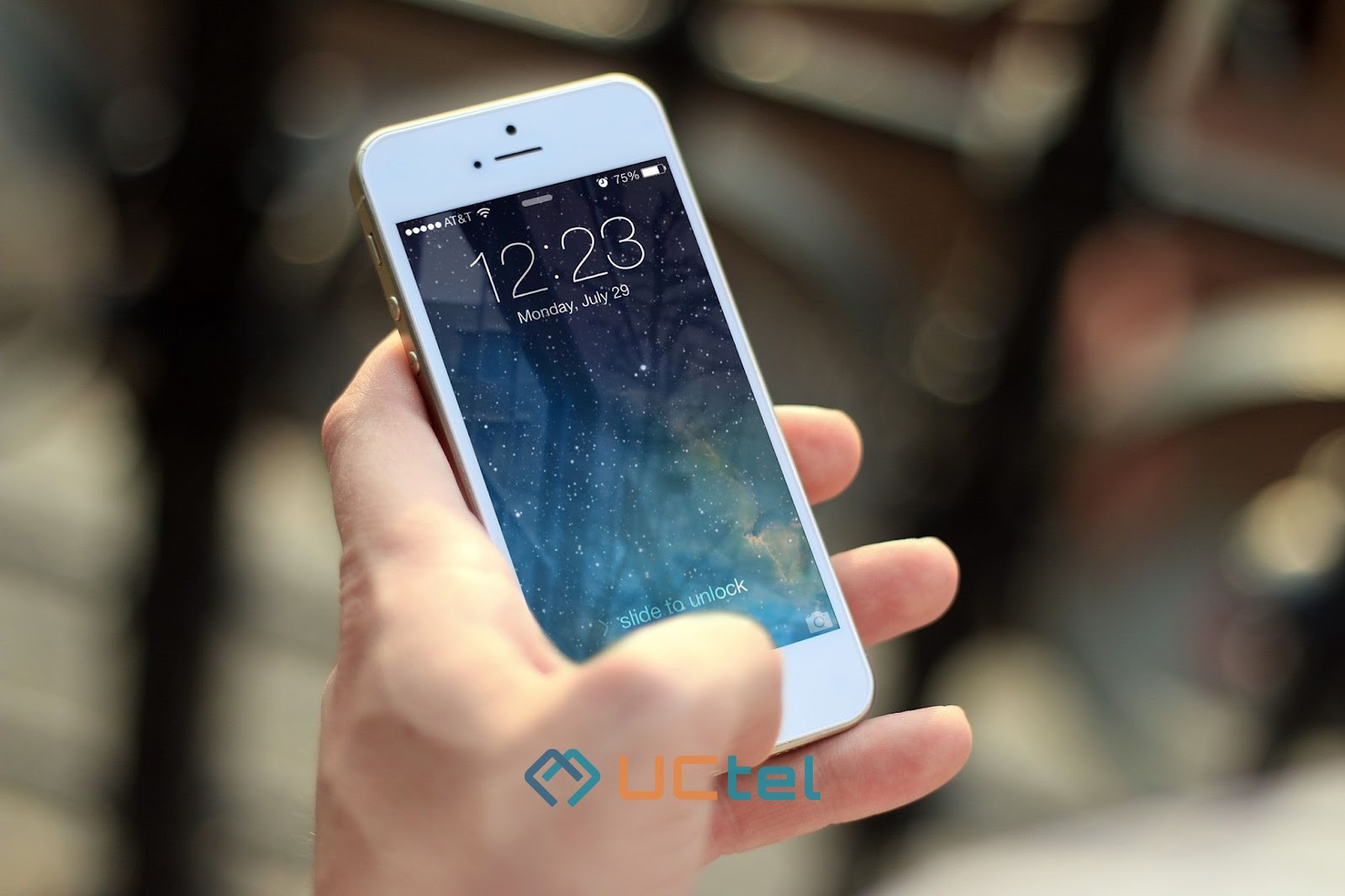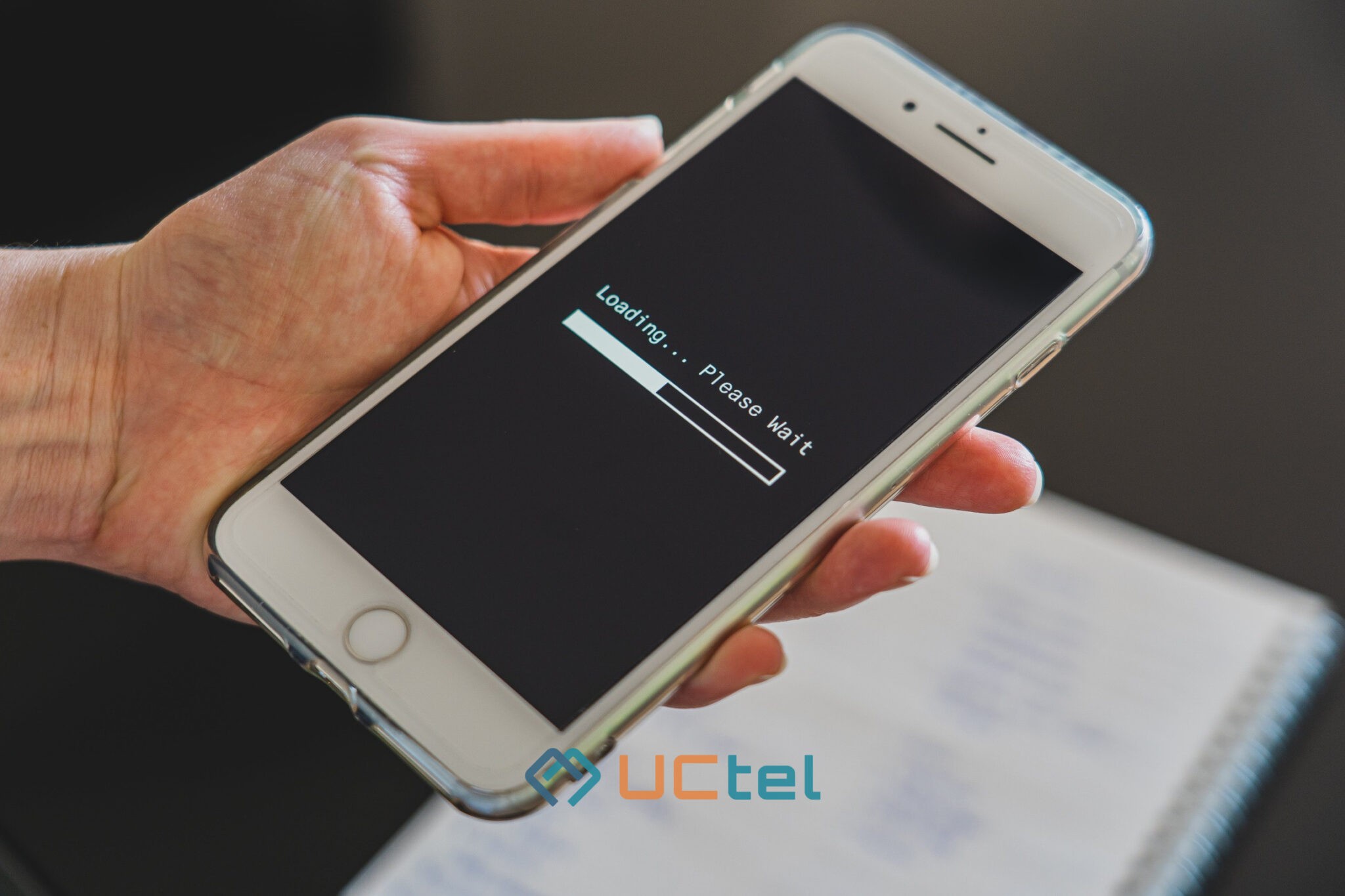
5G vs LTE: Speed, Coverage & Signal Strength Comparison
Table of contents
- 1. Difference Between LTE and 5G: Working Principle
- 2. 5G vs LTE: Key Capabilities Comparison
- 3. When It's Worth to Continue Using LTE
- 4. When it’s Reasonable to Use 5G
- 5. So, Is LTE or 5G Better?
- 6. Discover UCtel Experience in Next-Generation Private 5G Networks and Indoor Signal Boosting Solutions
With the development of new communication technologies, many people are beginning to wonder about the difference between 5G and LTE. Not so long ago, when the 4G LTE network started to be actively implemented, it seemed to be the future. But today, when dealing with 5G, it is clear that we were wrong about the fourth-generation network, and LTE is becoming the past.
But is 5G that much different? After all, the fourth-generation network is still fast and reliable enough. What's the difference between 5G and LTE? Do you need a 5G network? Will it bring something new to your business? Let’s figure it out.
Difference Between LTE and 5G: Working Principle
Dependence on Internet connectivity is the main reason for the development of LTE after 1G, 2G, and 3G. Further demand for high-speed data transfer is driving the need for 5G technology. Let's take a quick look at both technologies to understand the difference between LTE and 5G.
How Does LTE Work
"LTE" stands for "Long-Term Evolution" and is often referred to as "4G LTE". It is a standard for wireless broadband communication that supplemented and then replaced 3G, allowing faster web browsing on smartphones, laptops, and tablets. In theory, the speed should be 100 Mbps–1 Gbps for the 4G standard, but in reality, users are experiencing speeds around 30–100 Mbps, which still allows LTE to be considered 4G.
You should also know that LTE hasn't rested on its laurels since its launch. Mobile operators strived to provide the fastest speed for the 4G standard and, therefore, there were developed LTE-Advanced (LTE-A) and then LTE-Advanced Pro (LTE-AP), currently the best option available for 4G users.
How Does 5G Work
5G is a fifth-generation network that utilises advanced network architecture to revolutionise the mobile landscape due to its high data upload and download speeds. It started hitting the market in late 2018 and will continue to expand in the near future.
The main benefits of 5G are the maximum connection speed between 1 and 20 Gbps and a latency of 1 ms. Another major difference between 5G and LTE is the ability to support more customer devices in a given area. The new standard can reach up to one million customers in an area of 1 km².
5G vs LTE: Key Capabilities Comparison
Now let's compare LTE vs 5G in terms of their main characteristics:
Speed
There is a clear winner in terms of what's faster, 5G or LTE. Theoretically, the maximum LTE network speed is 100 Mbps for mobile subscribers (trains, cars, etc.) and 1 Gbps for static subscribers (smartphones, laptops, etc.). But the average LTE speed does not exceed 100 Mbps.
If we talk about 5G, the speed of the fifth-generation network is many times faster. Theoretically, this network can transmit data at a maximum speed of 20 Gbps. Even if it will be 10 times worse than stated, like in the case of 4G, the rate of 2 Gbps is still optimal for users to download large volumes of data quickly.
Latency
This is another major advantage of 5G over LTE. Latency is the period of time between the sending of information by one device and the beginning of its receipt by another. The lower the latency, the better it is. LTE has a reasonably low latency, only about 40–50 milliseconds, but 5G has surpassed even this, having a significantly lower latency of about 10–15 milliseconds, with future predictions of 1–5 milliseconds.
Capacity
Network capacity is the maximum number of devices a network can handle per 1 km2. A 5G network can handle about 1 million devices per 1 km2, while the limit of an LTE network per 1 km2 is only 100,000 subscribers. In this round of "Which is better, LTE or 5G," the score once again goes to the latter.
Coverage
So, we've found out if 5G is faster than LTE. But there is another important factor regarding what's better, 5G or LTE. The deployment of LTE networks started much earlier, and hence their coverage is almost universal, with up to 99% in the UK. At the same time, 5G towers are at an early stage of deployment, and even in large cities, 5G connections are not available everywhere.
Energy Consumption
With more bandwidth, 5G infrastructure appears to be more energy efficient than LTE. A 5G tower can transmit significantly more data per 1 kW of energy, which reduces uptime per user and minimises environmental impact.
When It's Worth to Continue Using LTE
Although in the battle of 5G versus LTE, 5G wins on almost all parameters, it's too early to abandon LTE for good. The main advantage of LTE over 5G is its more developed infrastructure. LTE coverage is incomparably larger, so unless you're in a big city, there's a good chance that 5G isn't available there. For some users, this is enough to answer the question, "Is LTE better than 5G for me in 2023".
In addition, price is a big factor. LTE technology is much more affordable, and therefore most businesses will find it quite reasonable to hold off on switching to 5G. The budget saved in this way can be channelled into other areas of development, and 5G can be addressed when there is a real need for it.
When it’s Reasonable to Use 5G
5G adoption is the future; sooner or later, all technologies will move to this standard. Insane speeds and low latency can revolutionise the way we do things. Today, 5G technology will be useful in industries where it is necessary to speed up the Internet. For example:
Autonomous vehicles
5G allows vehicles to react to objects and automatically change direction. For example, if a car is travelling at 30 mph, it should be able to receive a signal instantly to automatically adjust its speed or route if there is an object on the road.
However, with the current LTE latency of around 50–100 milliseconds, the car will receive signals a little later than on the 5G network, which can cause an accident. Therefore, the future of autonomous vehicles is 5G, not LTE.
Virtual reality and industrial technology
All augmented and virtual reality applications will become more interactive and immersive with the low latency of 5G. In the industrial sector, a technician who wears 5G AR glasses can see the overlay of a machine. It can also identify different machine parts that are unsafe to touch.
AI
When you apply AI to a huge amount of data, 5G speeds up data transfer through more efficient connectivity. For example, smart city AI can automatically correlate all traffic light data.
So, Is LTE or 5G Better?
Is 5G better than LTE? Undoubtedly, 5G is the technology of the future and the need of the hour. But for now, it’s clear that 5G will not replace LTE.
The main reason is that 5G is in its infancy, and the technology is not yet fully formed for its implementation. Moreover, upgrading all software to 5G is not an easy and overnight task. Many types of equipment need to be replaced to utilize 5G properly. Also, cell towers need to be upgraded with the latest 5G antennas to increase signal strength. So 5G and LTE can work together, and they will for a long time.
Discover UCtel Experience in Next-Generation Private 5G Networks and Indoor Signal Boosting Solutions
Now you know what the difference between LTE and 5G is, but whether you choose 5G or LTE, there's always the issue of connection stability. There is no point in picking a side in LTE or 5G if your business is equally far away from any base station or located where the signal cannot penetrate a wall. In this case, you need special equipment for signal amplification, and UCtel will help you get it.
UCtel is your reliable provider of signal-boosting solutions. We provide CEL-FI QUATRA 1000/4000e, GO G41/G51, and SOLO products that support 5G networks. During our work with many businesses, we've managed to take their communications to the next level with our signal-boosting solutions. Even the implementation of simple boosting solutions for elevators dramatically improves the overall work experience in a company. Read more about how our mobile signal boosters can improve signal quality in case studies, such as enabling private 5G networks with Nokia Digital Automation Cloud.
Contact us now, and our experts will be on-site to assess the scope of work and select the best equipment. You won't blink an eye as we'll have the equipment up and running with minimal disruption to your business processes.






